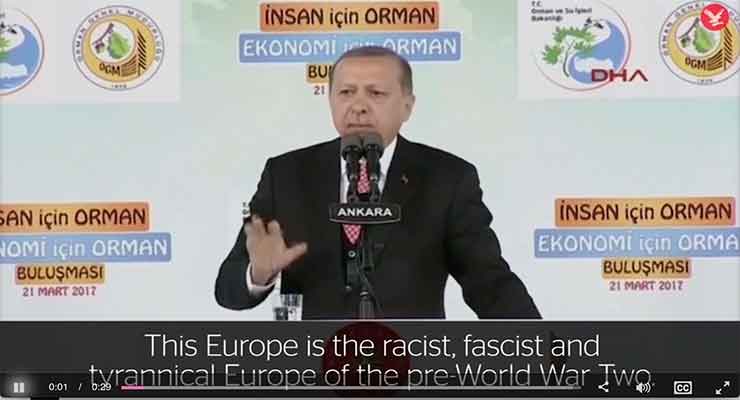 Germany, France, and the United Kingdom have both said that “Islamic State” remains a threat in Syria. All three appeared to dispute US President Donald Trump’s claimed that the militants had been vanquished.
Germany, France, and the United Kingdom have both said that “Islamic State” remains a threat in Syria. All three appeared to dispute US President Donald Trump’s claimed that the militants had been vanquished.
Washington’s European allies in the fight against “Islamic State” (IS) on Thursday appeared to dispute President Trump’s claim that the jihadi group had been defeated.
While announcing that the US would soon pull troops out of the country, Trump claimed that the IS militant group in Syria had been vanquished.
But international allies in the fight against IS — such as France, Germany and the UK — were somewhat surprised by the optimistic appraisal.
German Foreign Minister Heiko Maas said Washington’s “abrupt change of course” had put the fight against IS at risk.
“IS has been pushed back but the threat is not yet over,” Germany’s Foreign Office tweeted. There is a danger that the consequences of this decision will damage the fight against IS and jeopardize the successes already achieved.”
Germany currently has some 1,200 personnel involved in the fight against IS in Syria, including those invovled in refueling, naval, and training operations.
France: IS and its roots endure
Meanwhile, French Defense Minister Florence Parly acknowledged that the group had been significantly weakened, she said the battle was not over.
“Islamic State has not been wiped from the map, nor have its roots elsewhere. The last pockets of this terrorist organization must be defeated militarily once and for all,” Parly said on Twitter.
Some 2,000 US forces are in Syria at present, most of them on a train-and-advise mission for local forces fighting IS. France has an undisclosed number of special forces on the ground in Syria as part of the US-led coalition there, as well as fighter jets in Jordan and artillery along the Syrian border in Iraq.
UK: Still a threat without territory
Britain, which takes part in air strikes as part of the coalition effort, said it was important not to underestimate the threat that IS still poses.
In a statement late Thursday, the British Foreign Office said important advances had been made in recent days, but added that “much remains to be done and we must not lose sight of the threat they pose.”
“Even without territory, Daesh will remain a threat,” the statement said, using an Arabic acronym for IS.
While the Foreign Office statement diplomatically avoided a contradiction of Trump’s assessment, junior Defense Minister Tobias Ellwood was more blunt, saying he “strongly” disagreed.

 Paris is looking busy already – and what a sunny day too! No such sun in Zagreb, but plenty of excitement! As for Moscow, well the trophy has already been awarded…
Paris is looking busy already – and what a sunny day too! No such sun in Zagreb, but plenty of excitement! As for Moscow, well the trophy has already been awarded…



 by Soeren Kern,
by Soeren Kern, The excellent CNews journalist, Sonia Mabrouk, on January 25 interviewed Turkey’s ambassador to France, Ismail Hakki Musa, on the Turkish offensive against Kurdish fighters in Syria.
The excellent CNews journalist, Sonia Mabrouk, on January 25 interviewed Turkey’s ambassador to France, Ismail Hakki Musa, on the Turkish offensive against Kurdish fighters in Syria. The reception of President Erdogan on Friday, January 5th (Armenian Christmas Eve) is causing trouble among the Armenian community in France.
The reception of President Erdogan on Friday, January 5th (Armenian Christmas Eve) is causing trouble among the Armenian community in France. A memorial erected in the French town of Vienne to pay tribute to the victims of the Armenian Genocide was desecrated Saturday, November 4, French media and several Twitter users reported.
A memorial erected in the French town of Vienne to pay tribute to the victims of the Armenian Genocide was desecrated Saturday, November 4, French media and several Twitter users reported.